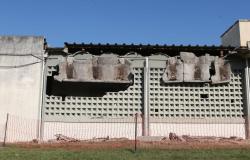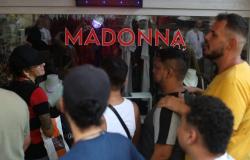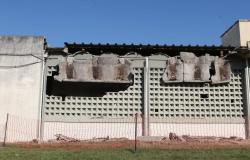The first bulletin of the Voto Com Orgulho Program, which maps LGBTI+ pre-candidacies in this year’s municipal elections, released this week by the National LGBTI+ Alliance, registered 150 pre-candidacies across the country, 132 from LGBTI+ people and 18 from people linked to cause. Of the 150 pre-candidates, 147 are for councilors and three for mayor.
The director of Public Policies of the National LGBTI+ Alliance and general coordinator of the Voto Com Orgulho Program, Cláudio Nascimento, informed this Wednesday (24) the Brazil Agency that people who intend to run for councilor and mayor in these elections can register with the Voto Com Orgulho Program, which has existed since 2016.
Nascimento stated that, in the program, the objective is to encourage greater representation of LGBTI+ pre-candidacies in elections, of a non-partisan nature. “We do not have a preference for any party, because it is non-governmental work, and it is understood that everyone organizes themselves the way they see fit.”
Growth
The director of the National LGBTI+ Alliance celebrated the result of the first partial of the program this year, considering that, in April 2020, the number of pre-candidacies did not reach 30.
“It is an interesting indicator that we may have, this year, greater representation of the LGBTI+ community in the electoral dispute. This, for us, is very important, because it is the debate that remains on rights, citizenship, which is carried out in the Legislature and in municipal councils. Therefore, it is essential that we have more people allied with the LGBTI+ citizenship agenda, bringing their own specific vision of the community’s reality.”
New partials should be released every one or two weeks, said Cláudio Nascimento. Registration in the Voto Com Orgulho Program is voluntary and individual and can be done at this address. The final results should be out by July. Party conventions will be held between June and August, when candidacies will be confirmed, giving visibility to the movement.
Nascimento stated that the central focus is to encourage LGBTI+ candidacies for municipal elections, but it is also necessary to have people allied with the cause in municipal councils.
“It is essential to value and fight for greater representation of the LGBTI+ community in municipal legislative chambers, but also to recognize the importance of having more allies in these spaces, to be better able to see bills and legislative proposals being made viable, because it is necessary to always have a minimum number of votes for bills.”
The president of the National LGBTI+ Alliance, Toni Reis, highlighted that the organization will support all candidates and allies to the cause, offering support in relation to political violence, fake news and hate speech against each candidate. According to him, the program is multi-party and constitutes a network of cooperation and solidarity for the electoral campaign. We are citizens who must have representation in public spaces of power,” he stated.
Concentration
The partial bulletin reveals that there is still a large concentration of pre-candidacies from this population in the Southeast, South and Northeast regions, while the Central-West and North of the country have smaller numbers. So far, the state of São Paulo has the largest number of pre-candidates for city council and mayor (34), followed by Rio de Janeiro, with 22, and Paraná, with 14.
The states of Minas Gerais and Pernambuco each appear with nine pre-candidates, while Rio Grande do Sul has ten pre-candidacies and Paraíba has six. The states of Bahia, Ceará and Santa Catarina each have five pre-candidacies. Alagoas, Espírito Santo, Mato Grosso, Piauí and Rio Grande do Norte each register four pre-candidacies, and Maranhão appears with three. The states of Pará, Goiás and Sergipe each have two pre-candidates and Amazonas and Tocantins each have only one pre-candidacy.
“There is also a distribution of pre-candidacies across various political parties, but there is still a concentration on those considered more progressive. This is also an interesting fact”, said Nascimento.
Of the registered pre-candidacies, 46 are affiliated with PT, 25 with PSOL, 18 with PDT, 13 with Rede Sustentabilidade and 13 with PSB. Of the other parties, five pre-candidates are affiliated with PV, six with Podemos, four with Cidadania, four with Progressistas, five with MDB, three with PCdoB, two with PSD and Solidariedade.
With only one pre-candidacy are the Republican parties, AGIR, União Brasil and Partido da Mulher Brasileira (PMB). From a political-ideological point of view, 94 identify themselves as left-wing, 33 center-left, 12 center, seven far-left, two right-wing and two center-right.
Another data from the first survey is that 52.7% of pre-candidates are black people (black and brown), with 79 pre-candidacies.
“This is very interesting data, because the majority of LGBTI+ candidates have always been from white people, in previous surveys”. White people have 66 pre-candidacies in this partial bulletin, with two indigenous people, two yellow people and one gypsy person.
Identity
Regarding the gender identity of those registered, 44% are women, among the 66 pre-candidates, 28 cis women and 38 trans and transvestite women. Cis men total 69 pre-candidates. There is also a pre-candidate trans man and 14 non-binary people. Of the trans women, three declare themselves intersex. Among non-binary people, two also declared themselves intersex.
Regarding the sexual identity of the pre-candidacies, 63 gays, 16 bisexuals, 17 lesbians, six pansexuals, two asexuals were identified, in addition to 46 heterosexual people, 29 trans women, 15 cis people, one trans man and one non-binary person. .
In terms of education, the first partial bulletin found that 94 people had completed higher education, 27 had incomplete higher education, 22 had completed secondary education, five had incomplete secondary education, one had completed primary education and one had incomplete primary education. Of the people registered with higher education, 28 have specialization degrees, 14 master’s degrees and five doctorates.
Program
The Voto Com Orgulho Program is coordinated by the National LGBTI+ Alliance in partnership with the Arco-Íris LGBTI+ Citizenship Group, from Rio de Janeiro, and the Dignidade Group, from Curitiba. The program also has institutional support from Sinergia Instituto de Diversidade Sexual de Minas Gerais, the São Paulo LGBT Pride Parade Association, the National LGBT Union, Rede Trans, Sleeping Giants Brasil, Association of Homotransaffective Families (ABRAFH) and Global Equality Caucus.
Tags: Increases number LGBTI precandidates municipal elections
--





